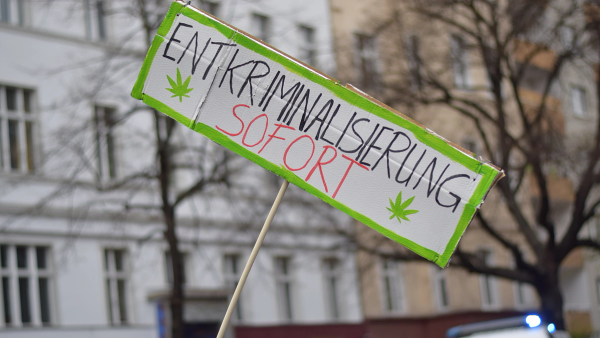Adrian Jurczak - Shutterstock
German cannabis legalisation explained
There was another landmark moment for cannabis reforms last month, ss Germany's upper house voted to bring its 80 million citizens one step closer to legally regulated cannabis access. This follows on from Malta’s recent establishment of a regulated non-medical cannabis availability (through non-profit membership associations), Luxembourg legalising possession and home growing, and ‘research pilots’ of legal retail production and sales in the Netherlands and Switzerland. These European countries have become the new leaders in ending the historic failings of prohibition, with Germany the most politically significant yet.
Transform has supported these reform processes over recent years, acting in an advisory role for the Luxembourg and Maltese Governments, and though ongoing engagement with senior policymakers in Germany, Czechia, and Switzerland. Our efforts continue to support and inform the development of cannabis policies throughout Europe that center public health and social justice. Last year, the newly updated third edition of Transform's cannabis regulation guide was translated into German and distributed to key policymakers.
What are the cannabis reforms happening in Germany?
After several years of debate and political wrangling, Germany’s upper house (the Bundestag) has passed a Cannabis Reform Act with a majority (407 to 226). The new Act decriminalises possession of up to 25g of cannabis (50g at home), allows for private cultivation of up to three cannabis plants for personal use, and establishes a framework for licensed not-for-profit membership-based associations (also known as Cannabis Social Clubs) to grow and supply cannabis amongst their members (max 500 per association).
What is the timeline for the new law?
In theory the law will come into force on April 1st. However, it still needs to be passed by Germany’s lower house (the Bundesrat) that represents the 16 German Lander (the sub-national jurisdictions under Germany’s federal government). Some of these more conservative regional Governments, notably Bavaria, are opposed to the reform and may hold up the process. A particular issue has been raised by regional justice ministries regarding the law’s requirement to delete previous criminal records for cannabis (offence expungement), with concerns that the process may overburden their judicial systems. This may mean there would be a ‘mediation committee’ between upper and lower chambers to discuss possible changes to the law - with the expungement element potentially at risk which would be a huge blow for ensuring justice. Whilst it seems very unlikely the new law will be derailed completely, implementation could potentially be delayed until October. A worst case scenario is a longer delay, pushing the reform beyond next year’s general election which, should the current coalition dissolve and the Christian Democrats (who opposed the reform) win, could potentially lead to it being abandoned or, if already passed, repealed.
